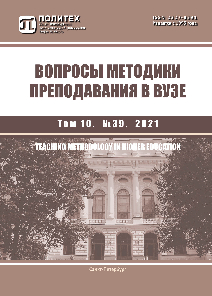Сritical thinking skills development for high-quality posttranslation analysis
The paper describes the concept of the critical thinking, as well as its role and significance for the post-translation process. The authors consider the need to form a conscious critical position, one of the main factors that determine the quality of translation, among the students of linguistics. A particular focus is placed on the study of some translation errors, which may occur due to the insufficient post-translation analysis. The main recommendations related to the educational process management and necessary for developing the ability to think critically among the students majoring in linguistics, are highlighted. The authors consider the effectiveness of the paired activities for developing critical thinking skills during the process of translation editing. The paper provides an example of the post-editing machine translation exercise, which helps students learn how to identify problematic translation segments and eliminate errors and inaccuracies at the post-editing stage. Based on the analysis of the studied literature a systematized list of questions, helping students to conduct posttranslation analysis in the classroom after the individual, pair and group work, is offered. The results of the study demonstrate the necessity of developing critical thinking skills among the linguists in order to improve their ability to conduct a comprehensive high-quality post-translation analysis.



